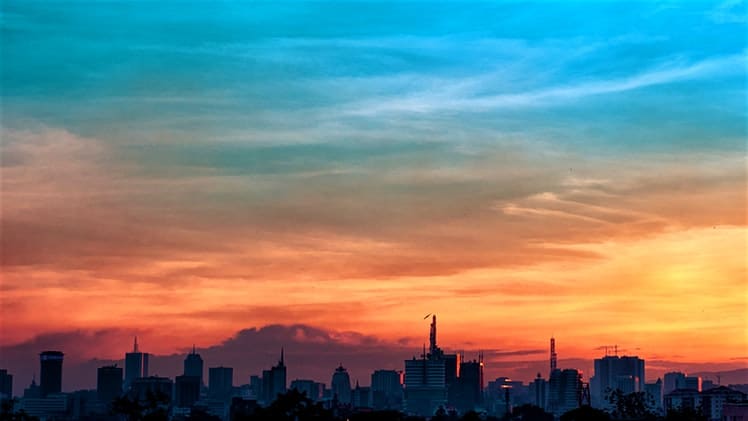10 Swahili phrases you need to know before traveling to Kenya
Nairobi is one of the most developed cities in Africa. As such, it has become one of the most visited tourist destinations in Africa, attracting visitors from all over the world. With a population of more than 4 Million people, it would be important to know how to communicate to the locals to get what you want as a tourist, or for a smoother experience while in the city.
Majority of the people living in Nairobi are English and Swahili speakers, the two national languages of the country. The younger Nairobians have additional languages that might be hard to understand for visitors. They have “Sheng” which is a modified form of Swahili and “Slang”, a modified form of English. Some tourists actually enjoy leaning and speaking the “Sheng” as a majority of the people in the city are the youth hence it’s easier to interact in social events. All these are factors to consider when thinking of things to do in Nairobi.
But that aside, if you are an English or Swahili speaking tourist, you will fit right in. Some bits of English for those that can try will get you far enough, but if you plan to venture into other areas in the country and really interact with the locals, then here are 10 phrases in Swahili you should definitely memorize.
“Jambo/Hujambo”
This means ‘hello/hi’. It is polite to say hello as you meet people who will be taking care of you. For example, your taxi driver, the receptionist at the hotel, your guide…Some locals will even say hello to you regardless of where you meet, simply because you look or speak differently. In that case, then your answer to “jambo/hujambo” should be “nzuri/sijambo”.
“Nzuri/Sijambo”
This means ‘fine/I’m fine’. It’s the polite way of replying to a greeting. Add a smile to it and the greeting is complete. Sometimes this response can also be used in the case where someone says “habari gani?” – “how are you?”
“Kwaheri”
This means ‘goodbye’. As expected, you would use this phrase when parting ways with someone you’ve been around for some time. “Kwaherini” would be used to say goodbye to a group of people.
“Tafadhali”
This is Swahili for “please”. You will use the phrase a lot while asking for things. You will only need to add the phrase at the end. For example, “how much is the fare please?” would be…”nauli ni pesa ngapi tafadhali?” If you were using public transport.
“Samahani”
This means “excuse me”. Just like its English meaning, this phrase will be used to ask for directions, ask questions at your hotel or strangers, etc. Sometimes you will combine the phrase with “tafadhali”. For example, if you want to know where a specific hotel is, you would ask in English “Excuse me please…where is the Kempinski Hotel located? ”
So the same question in Swahili would be…
“Samahani….Hoteli ya Kempinski iko wapi tafadhali?”
“Asante”
This is Swahili for “thank you”. Just like with “tafadhali”, you will most probably use this phrase when thanking those that give you directions or clarify information on your map, etc. To the word “asante”, you can also add “sana”. Thus, “asante sana”. This means “thank you very much”. In addition, you can also use the phrase “nashukuru” (I thank you) instead of “asante”. Means the same thing.
“Ndio/Hapana”
These two phrases will normally go together as you will be using either or in replying to specific direct questions. They translate to “yes” for “ndio” and “no” for “hapana”.
“Sawa”
This means “OK”. You are agreeing to what you are being told or want to show that you have understood what you have been told.
“Leo/Kesho/Jana”
“Leo” means “today”, “kesho” means “tomorrow”, “jana” means “yesterday”. These are phrases that might be used together as you will either be explaining to someone when you landed, when you will be leaving, or when you want to go and check out a specific attraction. This is of course with the assumption that you are not in the city for long.
“Nataka”
This translates to “I’d like”. It is a phrase you will use a lot when requesting for services in your hotel, or while shopping. For example, asking your taxi driver to take you to town…”I’d like to go to town please” – “Nataka kuenda town tafadhali”.
The above are just some of the phrases you will want to know before making your trip to Nairobi, or to any other Swahili speaking city. You definitely get more points with the locals for speaking their language, and you will be happy knowing you made the effort to learn beforehand. “Karibuni” (welcome to) Nairobi!
Planning a trip to Paris ? Get ready !
These are Amazon’s best-selling travel products that you may need for coming to Paris.
Bookstore
- The best travel book : Rick Steves – Paris 2023 – Learn more here
- Fodor’s Paris 2024 – Learn more here
Travel Gear
- Venture Pal Lightweight Backpack – Learn more here
- Samsonite Winfield 2 28″ Luggage – Learn more here
- Swig Savvy’s Stainless Steel Insulated Water Bottle – Learn more here
Check Amazon’s best-seller list for the most popular travel accessories. We sometimes read this list just to find out what new travel products people are buying.











